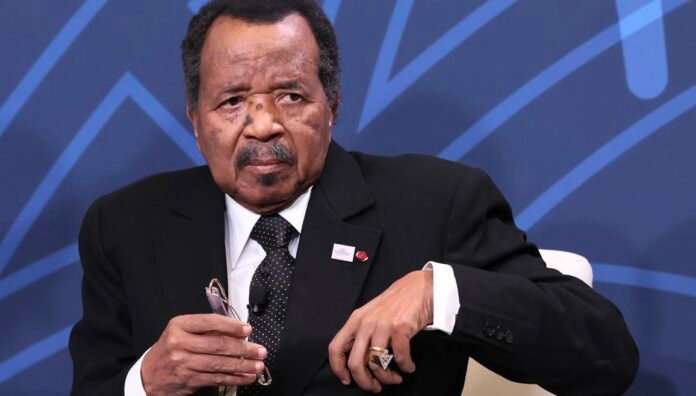Cameroon’s long-serving president, Paul Biya, has confirmed his bid for an eighth consecutive term, despite mounting domestic and international calls for him to step aside after more than four decades in power.
Biya, 92, announced his intention to run again in July, saying he was responding to “numerous and insistent appeals” urging him to remain in office. But the current election season has been marked by unprecedented public appeals for change — including from senior clerics, former allies, and even his own daughter.
Catholic Archbishop Samuel Kleda was among the first to speak out, telling French radio last December that it was “not realistic” for Biya to continue leading the nation. Soon after, two cabinet ministers from Cameroon’s vote-rich northern regions resigned, citing concerns over the president’s age and capacity to govern.
In a striking development, Biya’s 27-year-old daughter, Brenda Biya, posted a video on TikTok last month declaring that her father “has made too many people suffer” and urging citizens to vote him out. Though she later retracted the statement, the clip continues to circulate widely among Biya’s critics.
Despite the growing discontent, Biya — the world’s oldest sitting head of state — remains the overwhelming favourite to win when the Central African country heads to the polls on October 12.
Analysts say Biya’s grip on power is sustained by a deep-rooted patronage system, loyal security forces, fragmented opposition, and weak electoral institutions.
“The president has managed to enforce loyalty to him and the system. Very few within the ruling elite are willing to challenge him,” said Arrey Ntui, a senior analyst at the International Crisis Group.
Health Concerns Shadow Campaign
Biya has ruled Cameroon since 1982, when he succeeded founding president Ahmadou Ahidjo, later forcing him into exile. He survived a 1984 coup attempt and narrowly won the country’s first multi-party election in 1992, before removing presidential term limits in 2008.
He subsequently secured comfortable victories in the 2011 and 2018 elections, which opposition groups and observers condemned as marred by intimidation and ballot manipulation.
Now, speculation about Biya’s health — a long-running issue in Cameroon — has resurfaced. Last year, he vanished from public view for 42 days, prompting widespread rumours that the government dismissed as “pure fantasy.” Officials have even banned public discussion of his health.
Meanwhile, millions of Cameroonians continue to struggle with poor infrastructure, electricity shortages, and inadequate public services, fueling frustration among the population.
Concerns Over Election Credibility
Critics say the playing field for the 2024 election has already been tilted in Biya’s favour. In July, a court barred opposition leader Maurice Kamto, Biya’s main rival in 2018, from running, claiming his party had already endorsed another candidate.
Human Rights Watch said the decision “raises concerns about the credibility of the electoral process.”
Kamto, who denounced the 2018 results as fraudulent, was arrested in 2019 after leading protests that security forces violently dispersed. He faced insurrection charges before a military court — charges that could have carried the death penalty — before being released later that year.
Observers say the threat of arrest continues to silence dissent across society.
“When you take a taxi in Cameroon, you don’t know who the driver reports to,” said Raoul Sumo Tayo of the Institute for Security Studies. “People are afraid to speak, and that silence empowers the regime.”
Despite growing unease about his age, health, and record, Biya appears determined to extend his 43-year rule, underscoring the resilience of one of Africa’s most entrenched political dynasties.
Source:Africa Publicity








